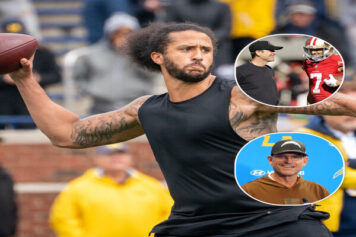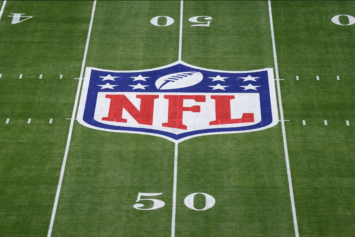Two storylines, one Super Bowl, and Atlanta’s biggest elephant.
It was April 28th, 1967.
World heavyweight boxing champion, Muhammad Ali refused to be drafted by the U.S. Army.
Ali’s philosophy was simple: “No Viet Cong ever called me nigger”. Why fight for the cause of those that labeled him that daily?
He was brave enough to do the unpopular thing and verbalized it with incredulity that shocked the status quo.
His association with Nation of Islam founder Elijah Muhammad and speaker Malcolm X already made the country timorous. Ali promoter, Bob Arum discussed the time period with Newsday.
“He was reviled by upwards of 90 percent of the people in this country.”
“You cannot believe the hate that was thrown our way because of Muhammad’s positions.”
Arum promoted 7 Ali fights within a year before the scheduled bout against Zora Folley at Madison Square Garden. Ali knocked Folley out in seven rounds and the U.S. government knocked him out of the competition.
Banned from boxing, his case went all the way to the Supreme Court.
Eventually, they ruled 8-0 in his favor.
Ali’s comeback fight was in Atlanta at the Municipal Auditorium against Jerry Quarry winning via third round TKO.
1996 Atlanta Olympic Games
What if I told you that Muhammad Ali almost didn’t light the Atlanta Olympic torch in 1996?
Although Ali was a boxing gold medalist in the 1960 Games in Rome, he almost didn’t receive that honor.
Former NBC executive, Dick Ebersol, told Sports Business Journal that there was pressure from Billy Payne, the head of Atlanta’s Olympic organizing committee, to go with Evander Holyfield instead.
To Ebersol, Ali was a conscientious objector but to Payne, Ali conjured “draft dodger” memories the old South might not want to forget.
“But he wasn’t a draft dodger,” Ebersol told The Washington Post. “He was willing to go through the legal process. He was found guilty and he was on his way to prison, but the federal court of appeals in the state of New York threw it out and the Supreme Court refused to intervene three years later. He lost three big money earning years. But he didn’t run away from the country. He didn’t go to Canada. He was willing to stand on his principles.”
The Kaepernick Shroud Over The “A”
Why hasn’t quarterback Colin Kaepernick signed to a team since opting out of his contract with the 49ers in March 2017?
“I think if a team decides that Colin Kaepernick or any other player can help their team win, that’s what they’ll do,” said NFL Commissoner Roger Goodell during a press conference this week in Atlanta. “They want to win and they make those decisions individually in the best interest of their club.”
“Our clubs are the ones that make the decisions of players they want on their roster.”
Kaepernick stands on his principles. Like Ali, the ability to withstand the ire of the American public for showing them the racist reflection of inequality is not for the faint of heart.
However, as Ali showed with his comeback and eventual status as a global icon, principles build legacies; not just trophies and titles.
Ali’s comeback and Olympic torch lighting in the capital of the South fused a legacy of service for others. However controversial, Kaepernick, like Ali will be the albatross hanging over Super Bowl LIII’s neck like the Atlanta Olympic shadow cast by “The Greatest”.
An overture to Kaepernick to host a panel on diversity would have been a good start. An actual meeting with Roger Goodell to have a true face-to-face to understand what he thinks can help the NFL would be even better.
The ghosts of sporting past can and will dictate the life of sport’s future and Ali is the perfect example. The man who was once a martyr became an icon while alive. Kaepernick, for however long he is not athletically active as a professional, is on a collision course towards the same future.
We can only hope it won’t take 20 years and another Olympic torch to prove that fact.



